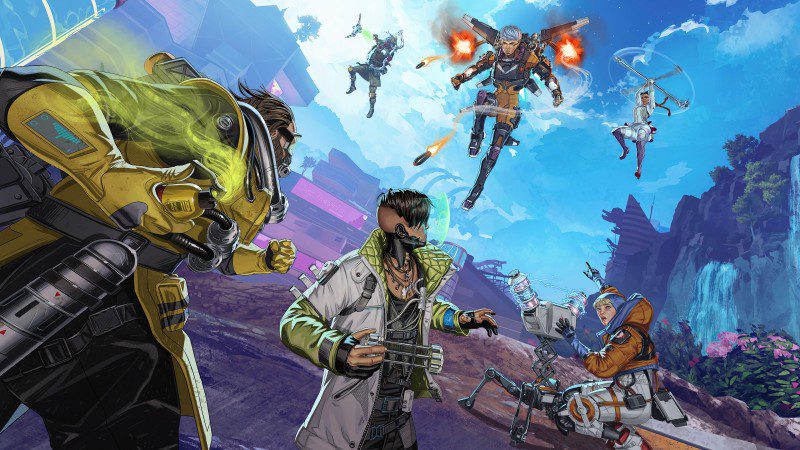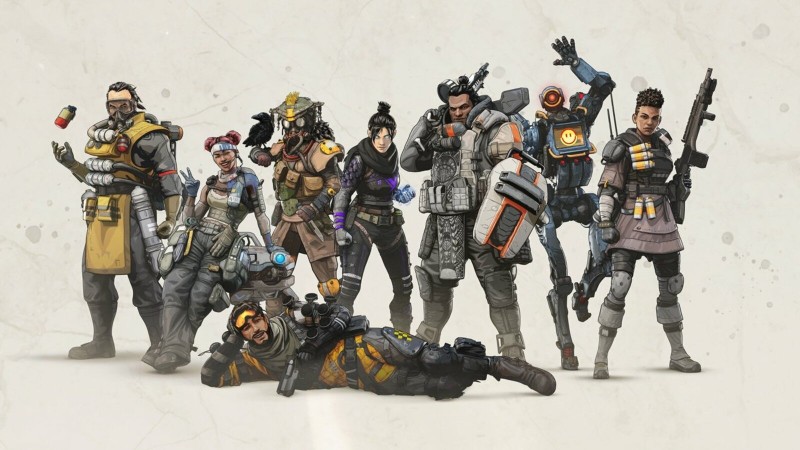Apex Legends Is Still The Best Battle Royale, And It's Not Even Close

My first battle royale skydive was in the early access version of PUBG. I landed on the outskirts of Lipovka and, with the devastating SCAR-L, made quick work of enemies. There were brief moments of gratification, but securing that delicious Chicken Dinner tested my patience for dozens of hours and proved too frustrating. Fortnite’s cartoonish aesthetic and enticing crossovers scratched my casual FPS itch, but the base-building mechanic constantly shattered combat momentum. Warzone’s sensory overload was downright overwhelming. With arena sizes that seemingly rivaled open-world games, a high combatant count, and annoying purchasable killstreaks, Call of Duty’s battle royale reminded me that less is more.
And then there’s Apex Legends, the great equalizer – where skill, tactics, and dumb luck (RNG) coalesced into intense, energetic bouts. Even three years after its surprise launch, Apex Legends continues to be the best battle royale out there.
Titanfall’s parkour physics demonstrated that flashy animations complement tight gunplay and empower players. Apex Legends might not have wall-running or explosive mech action, but the movement remains fluid. Grappling, sliding, crouching, wall jumping, changing directions midair, and sprinting make matches exhilarating and streamlined. Moreover, interactions beyond simply firing your R-301 or chucking a Thermite reward experimental/strategic play. For instance, while useful for the incapacitated, knockdown shields can also be repurposed as mobile cover for low-health teammates. I can’t count the number of times I’ve frantically popped a shield battery or reloaded my Wingman behind a downed ally to save the day. Blocking enterable doors with Loba’s Black Market Boutique or kidnapping unsuspecting adversaries with Wraith’s Dimensional Rift are other great examples of how Apex Legends’ mechanical depth redefines engagements.
Smaller squads mean that encounters aren’t prolonged, but compact maps also catalyze third-parties. When one firefight ends, another is bound to begin. This keeps the tension high and generally leads to shorter matches (who doesn’t love to get some rounds in before work?).
At the heart of Apex Legends’ charm is its infectious ensemble cast. PUBG’s stripped character creator, Fortnite’s various skin-deep cosmetics, and Warzone’s forgettable avatars don’t hold a candle to Respawn Entertainment’s eccentric prizefighters. Narrative beats tend to be peripheral – revealed in cinematic trailers or comics – but voice lines, ability kits, and lore events contextualize character motivations. Bangalore is the latest badass trooper in a military family. She often comments on optimal weapon attachments when pinged. Whereas the lighthearted genius, Wattson, might blurt out cheesy electricity puns when celebrating a decisive victory.

Certain squad combinations trigger unique barks and conversations, too. Loba is hostile to Revenant, her parent’s killer, but is appropriately warmer to alleged love interest Valkyrie. These diverse personalities contribute to the competitive shooter’s replayability and, more importantly, make players feel attached to their legend of choice.
Season 13 is well underway with the addition of defensive warrior Newcastle, significant changes to the tropical beaches of Storm Point, and ranked mode tweaks that promote teamplay. Compared to its contemporaries, Apex Legends sets a new standard for battle royales with accessible but elegant controls, enticing equipment like heirlooms, finishers, and badges, likable playable characters, and strong dev support in the form of recurring/original seasonal events. If you’re looking for a multiplayer experience that perfectly balances competitivity with flashy fun, look no further than the untamed, laser-ridden frontiers of the Outlands.




